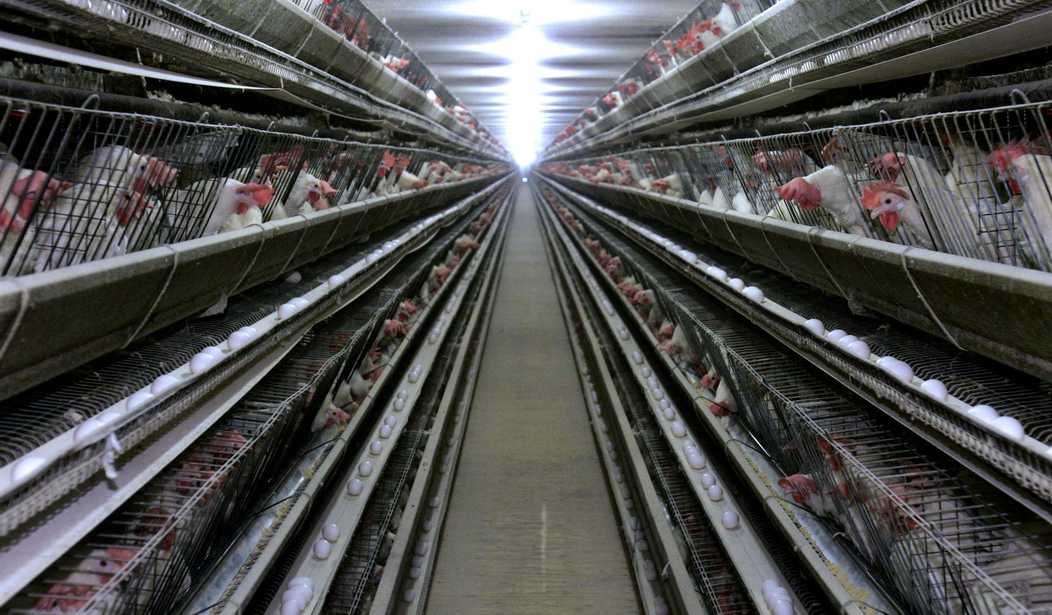Texas Agriculture Commissioner Sid Miller announced Tuesday. that a major egg producer has halted operations at a poultry facility in Farwell, Texas. It is a temporary stop in operations.
Cal Maine Foods, a national egg producer with locations across the country, has multiple locations in Texas. The Farwell facility reported a positive test for bird flu so it is required by the U.S. Department of Agriculture to depopulate 1.6 million laying hens and 337,000 pullets at the facility in the Texas Panhandle. The hens account for about 3.8% of the company's flock as of early last month.
“This is absolutely devastating news for Cal-Maine and the entire Panhandle region which has already suffered so much already,” Miller said in a news release. “Given this latest development, all producers must practice heightened biosecurity measures. The rapid spread of this virus means we must act quickly.”
The Centers for Disease Control and Prevention (CDC) confirmed on Monday that a Texas dairy worker tested positive for the bird flu after being in direct contact with cattle. That was the second human case of the HSN1 flu in the United States and the first one associated with cattle.
Five confirmed bird flu cases in dairy facilities across the country have been confirmed by the USDA. Eleven dairy herds have had the bird flu detected in Texas, Kansas, Michigan, and New Mexico. There is a presumptive positive test pending results in an Idaho facility.
Miller is reassuring consumers that rigorous safety measures and pasteurization protocols ensure that dairy products are not affected by the bird flu. Dairies are required to destroy or divert milk from sick cows. The Texas Department of Agriculture plans to continue to monitor and provide guidance to producers and consumers since seven of the herds are in Texas.
“Producers need to work with us and report cases right away,” Miller said. “Transparency is going to be key to navigating and mitigating this outbreak. I encourage producers to work with state and national officials to report any symptomatic animals as soon as you identify them.”
According to the CDC, the health risk for the general population is low.
Consumer demand for dairy or beef has not been affected, at least not yet. There are concerns, though, that a wider outbreak could cause an impact.
The person in Texas who tested positive for bird flu only had one symptom - eye inflammation. The person was tested by the CDC over the weekend and is being treated with the antiviral drug Oseltamivir.
Preparations are being made by the federal government in case additional human cases of bird flu are reported. Officials are working on testing components to create a vaccine. There is no need for an emergency response at this time.
Two candidate vaccine viruses — essentially the building blocks manufacturers use to produce a vaccine — appear well matched to protect against the H5N1 strain circulating among dairy cattle and birds, according to federal health officials. It’d probably be weeks to months before those shots could first be made available if needed, according to a Health and Human Services official who spoke on the condition of anonymity to describe an ongoing investigation.
Top officials at the Centers for Disease Control and Prevention said the agency is well poised to detect if a person has H5N1 through the agency’s regular surveillance for seasonal flu at more than 100 public health labs in all states as well as enhanced monitoring put in place in 2022 for anyone who has been exposed to birds infected with that strain.
CDC Director Mandy Cohen said that the department and the whole U.S. government are taking the situation very seriously. There is concern over the fact that avian flu has not been seen in cattle before last week. She said cattle make a reservoir for the virus to circulate and potentially change.
More than half a dozen federal officials say their job is to prepare for the worst but said risk to the general public remains low. H5N1 was first identified in geese in China in 1996, but outbreaks in the past haven’t led to an explosion of cases in humans.
The question is whether or not the CDC and other agencies are prepared to handle HSN1 if it becomes a widespread problem. Confidence is low in federal agencies after the handling of the COVID-19 pandemic.
“Why I feel we can say the risk of avian flu remains low to the public is because the virus we are seeing in the cattle and in this one human case is the same genetic virus that we were seeing in poultry,” Cohen said, meaning the virus has not yet evolved to spread easily in humans.
Since bird flu isn’t a novel virus, some experts believe the country is better prepared to tackle such an outbreak than COVID-19, but cautioned against overconfidence.
We'll see what happens. This may also have repercussions for egg prices if the outbreak grows. Consumers don't need that. There is enough stress over grocery prices as it is.








Join the conversation as a VIP Member